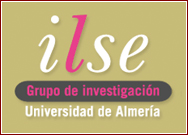Petición de contribuciones (revista)
Identity is a complex, dynamic and multidimensional concept that can be approached from multiple perspective across generous disciplines such as literature, linguistics, cultural, philosophical and social studies. It is these disciplines that offer theoretical tools and frameworks for understanding how identity is shaped through processes of (de)construction, expression, negotiation, duplication/splitting, and even annihilation under the impact of contextual factors that have the power and (in)direct authority to attribute to the Self a sense of belonging to different socio-cultural and socio-linguistic communities.
Identity is often constructed in relation to Otherness, a genuine source of challenge and enrichment. Interestingly, a proper understanding and correct decoding of the relationship between these two fundamental concepts is essential for navigating in an increasingly interconnected world. Hegel, Jung, Hoffman, Levinas, as well as Derrida, Todorov, and Kristeva have significantly explored these concepts from philosophical, linguistic, literary, cultural, and social perspectives, insisting that identity is constructed through the relationship with the other, in constant dialogue, in performative interaction or even through reciprocity.
Moreover, the relationship between Self and Other implies reciprocity at various levels. For instance, language can both construct and deconstruct differences, literature can explore spaces of affirmation or negation of identity through contrast or opposition (as exemplified in the works of Mircea Eliade, Albert Camus, or Franz Kafka), and cultural interactions may generate products, practices, values and traditions expressed through specific symbolic systems. This dynamic interplay can manifest as either fluid or opaque, influenced by permanent socio-political shifts.
Otherness serves as a mirror reflecting and redefining identity. Through interaction with the “other,” individuals and communities can clarify their values, norms, and ideological boundaries, prompting reflection, critique, and even reinvention of both individual and collective identities. This reciprocal dynamic also involves inherent tension, as otherness can be perceived as a threat, potentially leading to marginalization, exclusion, and radicalization. Conversely, recognizing otherness fosters a deeper, more nuanced understanding of identity, particularly in multicultural societies that prioritize acceptance and embrace diversity in all its forms.
The “other,” therefore, invites responsible dialogue, offering an opportunity to redefine identity through constant reshaping and increased receptivity. This encounter allows for the creation of common ground where differences are not denied but explored, re-evaluated, and integrated into a hybrid existential landscape. Often reduced to cultural stereotypes or simplistic images reflecting societal prejudices and fears, the “other” can also be exoticized or romanticized, leading to a fetishization of cultural differences evident in literary and artistic works that idealize other cultures. However, these hybrid cultural spaces also provide fertile ground for reflecting on the diversity and complexity of human experience.
The current issue of Meridian Critic extends an invitation to explore these generous concepts through diverse theoretical and methodological frameworks, culminating in the publication of a thematic dossier of original works. In our increasingly interconnected world, both real and virtual, where migration, technology, and intercultural exchange are reshaping the boundaries between Self and Other, we can collectively consider the influence of globalization on identity construction and the perception of otherness. This raises several key questions:
- How can otherness become a source of enrichment, rather than conflict, for individual and collective identities?
- What role do languages and discourses play in constructing otherness and establishing social hierarchies, power relations, and authority?
- How does otherness manifest within the individual, for example, through the subconscious or internal conflicts?
- And finally, how can identity and otherness be reconciled within multicultural societies without each losing its distinct character?
We also invite you to consider your own research questions related to the following areas/themes:
- Representations of identity and otherness in literature
- The construction of identity through language and discourse
- Otherness as a cultural and linguistic phenomenon
- National, ethnic, and regional identity in literature and linguistics
- Intercultural and inter-literary dialogue as an expression of otherness
- Gender identity and otherness in philological studies
- Migration, diaspora, and identity transformation
- Markers of identity and non-identity in virtual space
- Identity and otherness within the context of globalization and digitalization
Universitatea "Ștefan cel Mare", Suceava
<cristina.bleortu
 usm.ro>
usm.ro>











